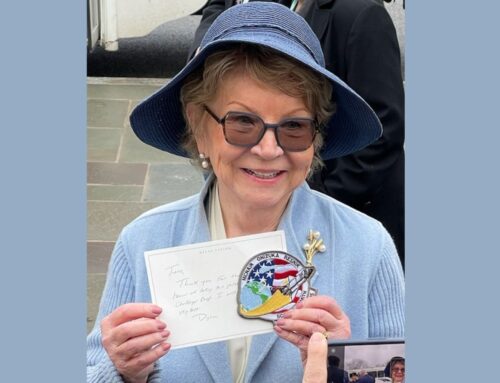Nichelle Nichols was a pioneering actor on Star Trek series in the 1960s. But she was also a critical player in ushering in change within the United States’ space program.
Nichols portrayed Lt. Nyota Uhura in the iconic series and was one of the first leading Black female characters on U.S. television. She spent decades working in film and TV, music while balancing all of that with her activism career. NASA sought her out to help NASA recruit some of its most diverse astronauts in 1977 including the first female and minority astronauts.
Helping NASA Break Boundaries
Nichelle’s advocacy is noted for transcending television and helping to transform NASA. A decade after Star Trek ended, Nichols began breaking boundaries for NASA, dedicated to inspiring women and people of color to join the iconic agency after Apollo 11. Her advocacy began when she first appeared in a promo film targeted at recruiting women and ethnic minorities to become astronauts, as she remembered during a 2012 visit to NASA’s Goddard Space Flight Center.
The next astronaut class, appointed in 1978 after Nichol’s NASA TV promo included Sally Ride, the first American woman in space and Guy Bluford, the first Black American in space. She also recruited Dr. Judith Resnik and Dr. Ronald McNair, who flew successful missions during the Space Shuttle program. Other recruits also include Frederick D. Gregory, former deputy administrator and a veteran of three shuttle missions and Charles Bolden, the former NASA administrator and veteran of four shuttle missions. As Nichols began this recruitment work she created an affiliation between NASA and Women in Motion, a company that she helped run.
“I had always been proud of our feats in space,” Nichols said during a commemorative speech at NASA’s Goddard Space Flight Center in February 2012. “But something always bothered me: ‘Where are the women? Where are the people of color?'”
During the event, Nichols noted that today’s NASA is exploring space ‘beyond the beyond’. She continued, “I wish I could live forever so I could live to see it because we’re on our way to the 23rd century that [Star Trek creator] Gene Roddenberry gave us… All our posterity will benefit from the growth of NASA.”
Thanks to Nichols’ role, she helped change the face of representation in STEM and helped others who never had the opportunity to explore space.
NASA noted, “As we work to send the first woman and first person of color to the Moon under Artemis, NASA is guided by the legacy of Nichelle Nichols.”
Nichols and NASA worked together many times over the years. Astronauts and other NASA employees recognized Nichols’ performance as Uhura as one of the reasons they wanted to join the agency.
From the 1980s onward, Nichols served on the board of governors of the National Space Institute (the current National Space Society), a nonprofit organization that provides educational space advocacy.
In late 2015, Nichols flew aboard NASA’s Stratospheric Observatory for Infrared Astronomy (SOFIA) Boeing 747SP. During that flight the scientist on board researched the atmospheres of Mars and Saturn on an eight hour, high-altitude mission. Her esteem within the space industry also led her to become a special guest at the Jet Propulsion Laboratory to watch the Viking 1 soft landing on Mars. Along with her other Star Trek cast members, Nichols also attended the christening of the first space shuttle named (not by coincidence) “Enterprise”.
At the time of Nichols’ death in July 2022, NASA Administrator Bill Nelson said in a statement, “Nichelle Nichols was a trailblazing actress, advocate and dear friend to NASA. At a time when Black women were seldom seen on screen, Nichelle’s portrayal as Nyota Uhura on Star Trek held a mirror up to America that strengthened civil rights.”
In mid-2022, plans were made for Nichols’ ashes to take flight into space. They are planned to be released into space from a Vulcan Centaur rocket by United Launch Alliance.
In the meantime, The Nichelle Nichols Foundation will carry on the actress’ legacy of inspiring young women and people of color to reach their blueprint for the stars.
Several generations of space explorers – from the children who grew up watching the original Star Trek – to their children – and grandchildren – continue to be inspired by efforts made by Nichele Nichols. No doubt her inspiration – like that of Star Trek – will continue for many years to come.






